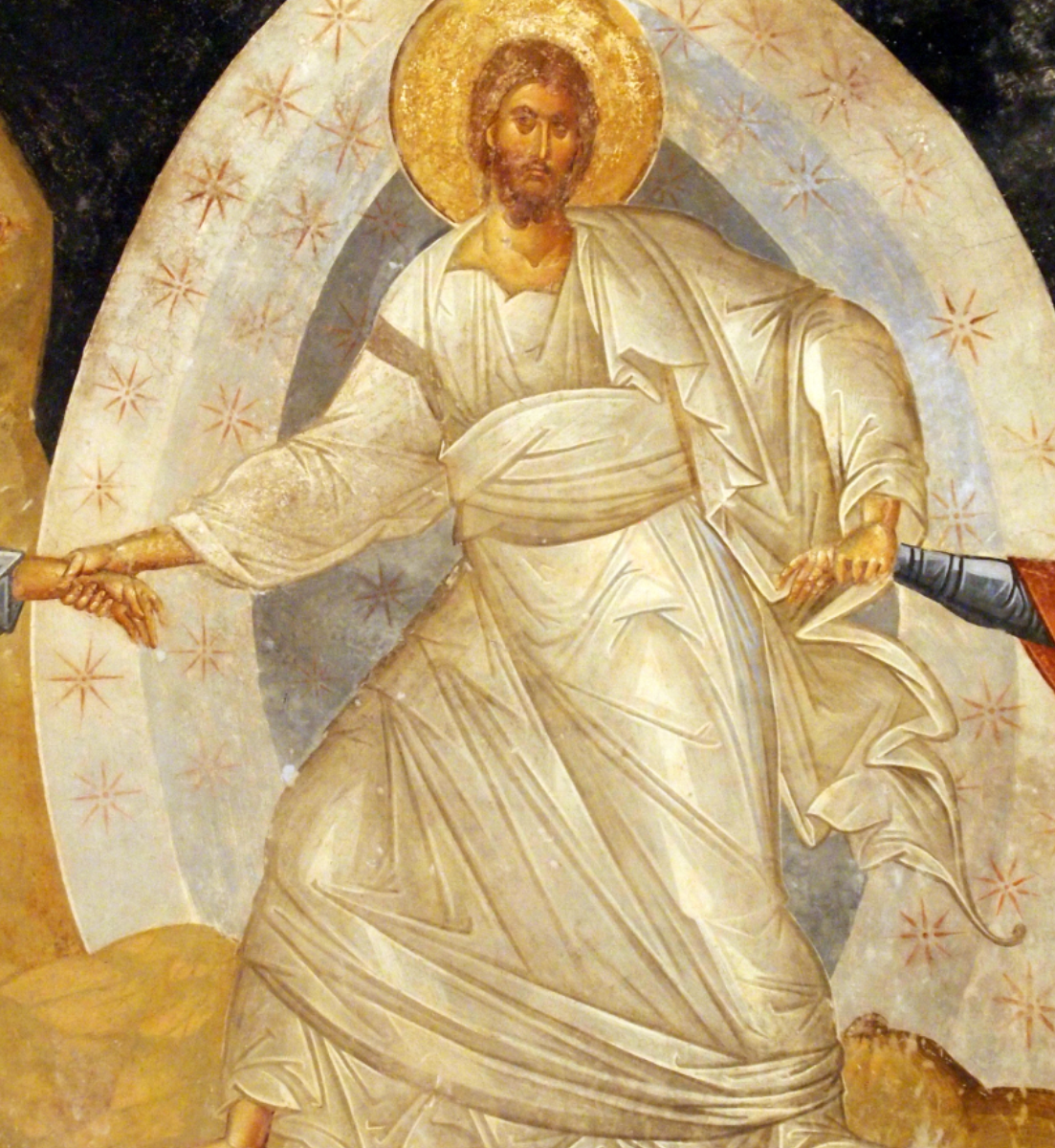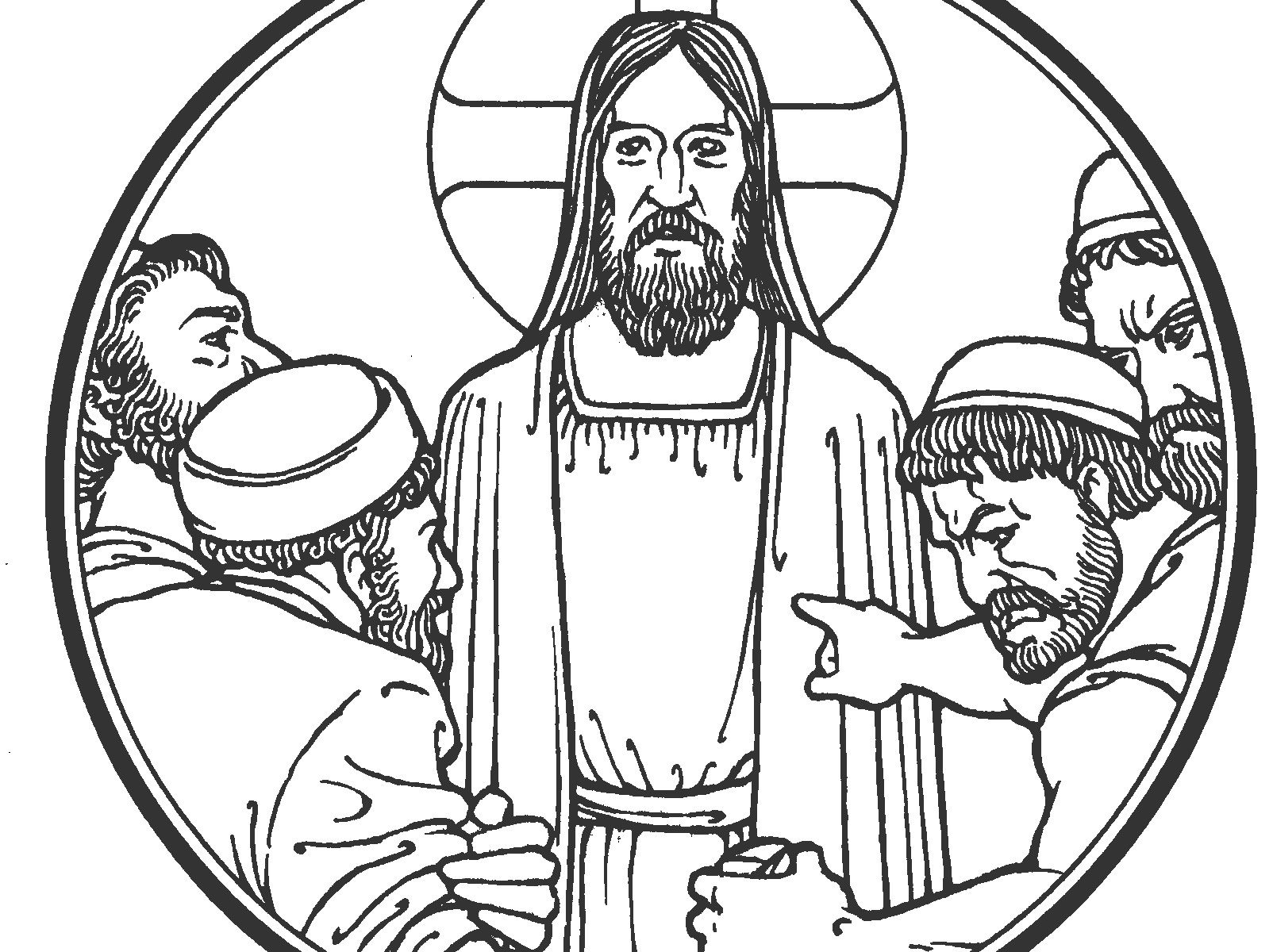Bethlehem Lutheran Church, Lebanon, OR
Second Sunday of Easter + April 28, 2019
Text: John 20:19-31
“As the Father has sent me, even so I am sending you,” Jesus tells His disciples on the evening of the first Easter. He wants His ministry to continue, for the Gospel to be preached to every town throughout the world. And history has shown this calling to be true. The Lord has preached, and continues to preach in every corner of the world.
The rub in that is that he sends men to do this—with all their flaws, their backgrounds, their quirks, their fears, their sins. But as is true anywhere there are people, it gets complicated. The apostles were behind locked doors for fear of the Jews, they were still behind locked doors a week later. They were uncertain, small in faith, weak in resolve, small in vision of what the Lord was asking of them.
Take Thomas for instance. In perpetuity, he has been dubbed, Doubting Thomas. The court of public opinion and years of pastors’ ink has been spilled either defending or defaming this man.
But like any of the other apostles, Thomas was a man. He had praiseworthy moments, like in chapter 11:16 at the death of Lazarus, it says, “So Thomas, called the Twin, said to his fellow disciples, ‘Let us also go, that we may die with him.’” If only that were a constant or regular state for his faith and conviction.
No, today, we see Thomas at one of his low points, putting a rash condition on the Resurrected Lord—“Unless I see in his hands the mark of the nails, and place my finger into the mark of the nails, and place my hand into his side, I will never believe.” But then there’s another high point when Thomas returns to his faith and confesses, “My Lord and my God!”
Jesus instituted His Church. He founded it on the rock with the promise that not even the gates of hell can prevail against her (Matthew 16:16). And in that church, He instituted the Office of the Ministry. He did this because it’s all well and good that there were eyewitnesses to the resurrection, and that’s great for the first generation. But the Lord’s will is that “Repentance and forgiveness of sins be proclaimed in His Name to all nations, beginning from Jerusalem” (Luke 24:47) and He will not return until “this gospel of the kingdom will be proclaimed throughout the whole world as a testimony to all nations, and then the end will come.” (Matthew 24:14)
That word is carried on through this Office of the Ministry, populated by men who are officeholders. They aren’t the power or the authority, and more than a police officer or a soldier has the right to become a vigilante and take justice into his own hands. He acts in the stead of the state. So also, the pastor in the office doesn’t have authority in himself to forgive or retain sins; it is Christ who is the power behind the words the pastor speaks. That’s also why, in the liturgy, the pastor says, “The Lord be with you”—because He is sent to speak the Lord’s Word to you. The congregation then replies, “And with your spirit” or “And also with you.” Both are an acknowledgement that it is the Lord who sent this man, and the congregation is also asking that the pastor be kept faithful and strong to carry out that divine Office.
Scripture speaks many different ways about these servants (literally slaves) of the Lord: house managers who give the proper portion (Luke 12:41-48), shepherds (John 21:15 ff.), stewards of the mysteries (1 Cor. 4:1-5). But their sufficiency for that office is not a matter of charisma, or managerial acumen, or what family they come from. As St. Paul, the man who had a history of persecuting the Church wrote, “Not that we are sufficient in ourselves to claim anything as coming from us, but our sufficiency is from God who has made us sufficient to be ministers of a new covenant, not of the letter but of the Spirit.” (2 Cor. 3:5-6)
And Jesus says the same thing multiple times: “As the Father has sent me, even so I am sending you.” “Truly, truly, I say to you, whoever receives the one I sent receives me, and whoever receives me receives the one who sent me.” (John 13:20) and in a warning tone, “The one who hears you hears me, and the one who rejects you rejects me, and the one who rejects me rejects him who sent me.” (Luke 10:16) It is the will of the Lord for His congregation, gathered around Him, to hear His Word through these men, even though they are weak and fallible.
At this point, you might be saying, Pastor, you’re just tooting your own horn. If I am, it’s meaningless because I am no more than an officeholder. Although I might want accolades for my labors, the glory really belongs to God alone. There have been pastors before me who have tended the flock here, and—God willing—there will be pastors in years to come. The point is that Jesus called even Thomas, even Peter, even James and John the sons of Zebedee, even Saul (Paul), even Martin Luther, even Pastors Caruana, Barkley, Rehley, and Rummerfield, and Miller. All of them men, all of them sinners. But it was the will of the Lord to make their feet beautiful with the good news of salvation. It is out of love for you that Jesus continues to send these men to tend you.
Jesus says to the Eleven: “Peace be with you” on both occasions that He comes to them. He declares this because, as men, they need the peace of the Lord just as much as the people they will proclaim to. Even as Thomas was sent with this good news, he needed it himself. All pastors need to receive forgiveness from the people they serve.
And you and I are blessed through this Office of the Ministry, because “How then will they call on him in whom they have not believed? And how are they to believe in him of whom they have never heard? And how are they to hear without someone preaching? And how are they to preach unless they are sent? As it is written, ‘How beautiful are the feet of those who preach the good news!’” (Romans 10:14-15)
So what does the Lord do with these men and His Church? He makes their feet beautiful with the good news of His Kingdom. He blesses us still with His good news: Peace be with you. The Word Jesus speaks is always aimed at forgiveness, but sometimes needing to preach a firm word of repentance. In those times, where the servant is sent to preach rebuke or correction, that’s when it gets complicated again. We can’t just accept the pastor as God’s called servant when he tells us what we want to hear. He is God’s servant for our spiritual and eternal good, whether it’s a word of Law that He speaks or it’s the glad tidings of peace with God.
So, on this Second Sunday of Easter, we rejoice that we still hear the voice of Jesus. Yes, it’s complicated because we don’t see him in just one place and with our own eyes. But blessed are those who have not seen, and yet believe. We will see, but for now, the order of the day for now is hearing. As St. Paul continues about those who are sent with good news: “Faith comes by hearing, and hearing through the Word of Christ.” (Romans 10:17) Blessed are you who hear those who faithfully serve you in the Office of the Ministry. Amen.





